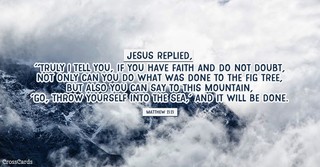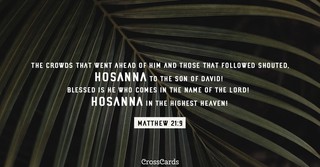- Recent Translations
- All Translations
Matthew 21:6
Share
Settings
Matthew 21:6 Meaning and Commentary
And the disciples went
The two disciples, as the Arabic version reads, to the village over against them; and, as Mark says, "found the colt tied to the door without, in a place where two ways met": the house was just at the entrance of the village, at the door of which, on the outside in the street, was the colt fastened, where were two ways of going into, and coming out of the town; so that it was a public place; the colt was easily seen, nor could it well be taken away without being observed, as it was by the owners of it: and
did as Jesus commanded them;
they loosed the colt; and whereas whilst they were loosing it, the owners of it asked them, what they meant by so doing? they returned for answer what Christ had directed them to say; upon which they were satisfied, and let them go with it; see ( Mark 11:4-6 ) . This is a very considerable instance of the faith of the disciples in Christ, and their ready and cheerful obedience to him; who might have objected the appearance of theft, the scandal that might be brought upon them, and the trouble they might be exposed to hereby; but they make no hesitation, but go and do as he had ordered them; and in which, they are worthy of the imitation of all the followers of Jesus.


